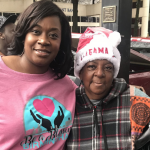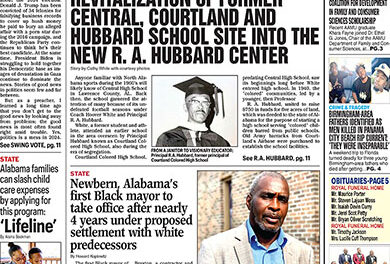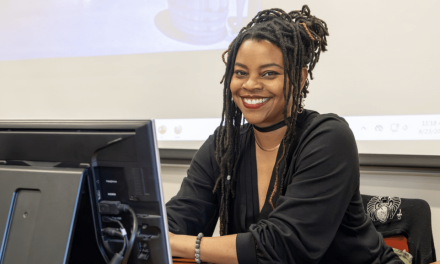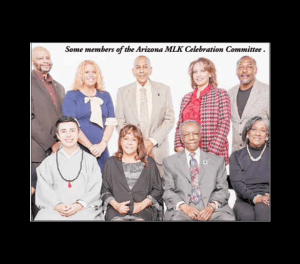By Ryan Michaels
The Birmingham Times
Community activist Erica “Starr” Robbins, founder of homeless support nonprofit Be a Blessing Birmingham, said plans to house the city’s homeless residents during The World Games 2022 (TWG2022) have been a disaster.
Currently, three prototype structures designed to serve as shelters for some of the city’s homeless residents during TWG2022 sit outside of Faith Chapel Care Center in Birmingham’s Smithfield neighborhood, she said. However, those aren’t expected to be the final designs.
In one of a series of TikTok videos posted this month Robbins described one of the structures as a “wooden oven.” Robbins describes the shelters as “ChickenCoops,” “DogHouses” and “Coffins” in her TikTok hashtags.
@starrobb @twg2022 are coming to Birmingham. here is a look at the human storage for my homeless neighbors so they will be outta site! This is #Inhumane #Disgusting #WoodenOvens #ChickenCoops #DogHouses #Coffins Alabama hit is no joke!! This is so wrong on so many levels!! please help me spread the message!! #Fyp #Foryou #Foryoupage #fypシ #viral #homelessness #homelessnessawareness #Advocate #advocacy #activist #Activism #GoodHuman #Birmingham #Alabama #Cruel please comment, like, share #ItsGreatOutdoors ♬ original sound – Star
With the postponement of TWG to 2022 from 2021 because of the coronavirus pandemic, Robbins said the city had enough time to plan sufficiently for homeless residents of Birmingham.
“This city has had a whole extra year to figure out a humane way to come up with a solution that has some longevity about it, but they didn’t, so here we are, three weeks away from the Games, and this is what is done,” Robbins said.
The 2022 World Games will run from July 7-17 at venues around Birmingham and Jefferson County.
Robbins told the Birmingham Times that homeless residents are currently being pushed out of the places they live and contends nine encampments for homeless people were cleared out last month.
Rick Journey, director of communications for Mayor Randall Woodfin, said encampments of homeless residents are regularly “addressed,” depending on the size of the encampments and impact on community but an “orchestrated effort to push homeless out” does not exist.
“Absolutely not. That is a false claim,” Journey added.
Robbins said she was angry that the homeless shelter project was advancing without communication to residents of the city.
“It is really disturbing to me—the fact that this is going on under people’s noses right here in the city. I literally have people in my [social media] comments that drive past that place every day, had no clue what [the structures were],” Robbins told the Birmingham Times.
The shelters, which are likely to be modified, are part of the “Compassion Project,” a plan headed by Kathy Boswell, executive vice president of community relations for TWG 2022, and involving numerous architecture entities, such as the Alabama Institute of Architects and Birmingham-based Williams Blackstock Architects.
Boswell said the project came together with input from organizations “who live and breathe homelessness,” she said in a Zoom presentation to the Alabama Center for Architecture in March.
Those organizations, she said, included Faith Chapel Christian Center, a site for homeless residents of Birmingham, which has showers, laundry machines and other services on site. In addition, God’s Loving Hand Ministries is also set to provide activities according to Suchithra Prabhu, an associate at Williams Blackstock who was also on the March Zoom call.
Debra Blaylock, executive liaison, ministerial/community at Faith Chapel, said team partners involved in the Compassion Project are planning a meeting for Thursday at 8 a.m. “to discuss every aspect of the project and ALL of the services and other activities being planned” during The World Games.
At a City Council committee meeting earlier this year, Boswell said the project was designed to live beyond the World Games.
“This Compassion Project is really being considered as a pilot project to look at how do we begin to address homelessness compassionately, realistically but to allow people to see how we can come together collectively and collaborate in a much less costly fashion than we ever envisioned,” Boswell said.
She said the goal was to build 50 to 60 of the structures, set them at the Faith Chapel Care Center for the length of TWG and potentially use them for homeless shelters afterward. “To be honest with you, the goal of this project is to look for sustainable opportunity of where this particular sheltering can be used even after the games,” said Boswell.
Robbins suggests a tiny home village with electricity and plumbing and onsite mental and physical health services, as well as career counseling for homeless individuals.
According to CBS 42, Boswell said up to $200,000 will be spent on the structures, but Robbins said simply renting motel rooms and providing the food and other services would be cheaper.











